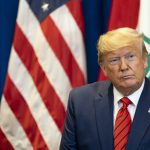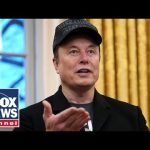President Donald Trump’s meeting with French President Emmanuel Macron at the White House marks a critical moment in international diplomacy as the world observes the third anniversary of Russia’s war in Ukraine. The discussions, which come amid Trump’s controversial approach to resolving the conflict, have raised questions about the future of U.S.-European relations and America’s role in global stability. Macron, representing European concerns, emphasized the importance of standing firm against Russian aggression, while Trump continues to pursue unconventional strategies that have left allies uneasy.
Central to the talks is Trump’s push for a deal granting the United States access to Ukraine’s vast reserves of rare earth minerals. This proposal ties economic interests to national security, with Trump framing it as a way to ensure Ukraine’s long-term stability while reducing U.S. reliance on China for critical resources. However, Ukrainian President Volodymyr Zelenskyy has resisted aspects of the deal, citing insufficient security guarantees. Zelenskyy’s recent willingness to step down from NATO membership further complicates the situation, reflecting his desperation for international support amid relentless Russian aggression.
Trump’s approach has drawn criticism for sidelining key stakeholders like Ukraine and Europe in favor of direct negotiations with Russia. Preparations are reportedly underway for a Trump-Putin summit, signaling a potential shift in U.S. foreign policy that could weaken Western unity. While Trump argues that engaging Putin is necessary to end the conflict, European leaders fear this strategy may embolden Moscow and undermine Ukraine’s sovereignty. Macron has warned that showing weakness to Putin could have broader implications for U.S. credibility, particularly in its dealings with China.
The proposed minerals deal also highlights Trump’s transactional approach to foreign policy. While supporters argue it aligns with his “America First” agenda by securing economic benefits for the U.S., critics see it as exploiting Ukraine during its time of need. This tension underscores a broader debate over whether America’s global leadership should prioritize strategic alliances or economic self-interest. For conservatives, Trump’s focus on leveraging resources reflects a pragmatic effort to strengthen U.S. interests while ensuring Ukraine remains viable against Russian aggression.
As these high-stakes discussions unfold, the future of transatlantic relations and the outcome of the Ukraine war hang in the balance. Trump’s willingness to challenge traditional alliances and negotiate directly with adversaries like Putin underscores his disruptive approach to diplomacy. Whether this strategy will lead to peace or further destabilize an already volatile region remains uncertain, but one thing is clear: the decisions made in Washington this week will have far-reaching consequences for Europe, Ukraine, and global geopolitics.




